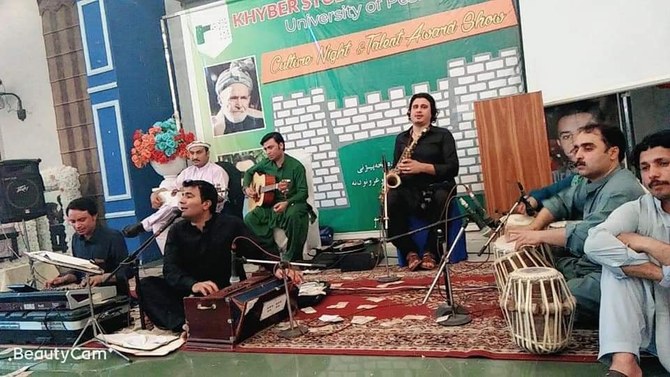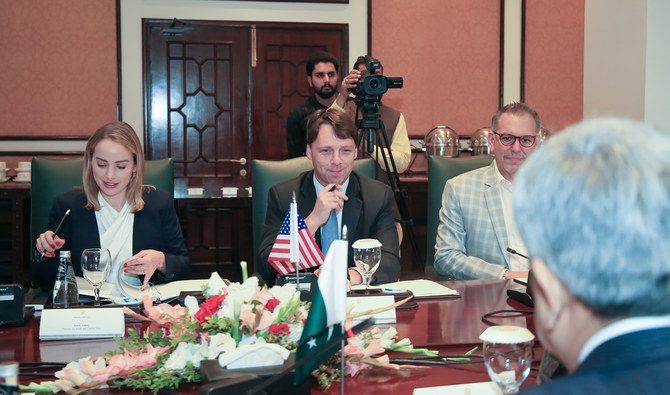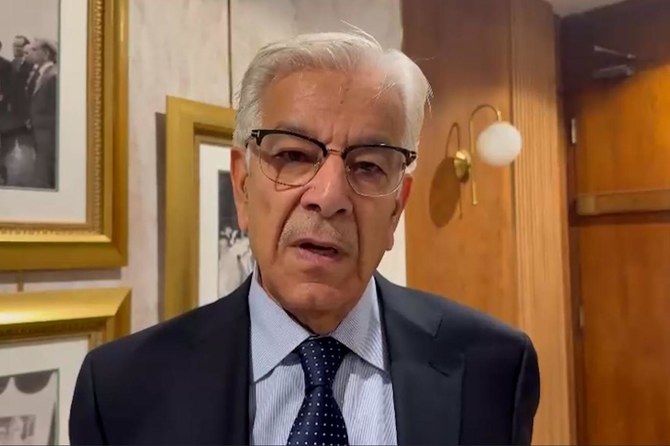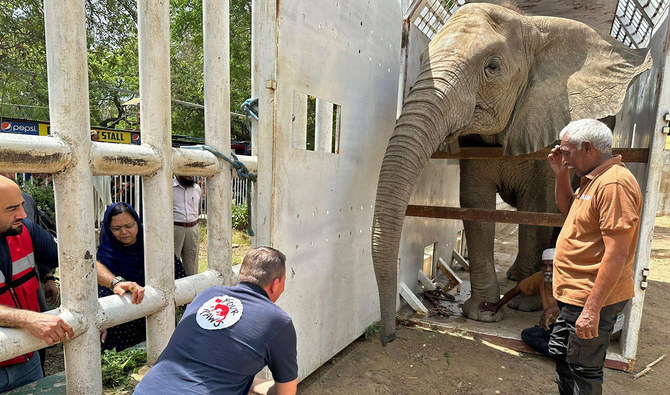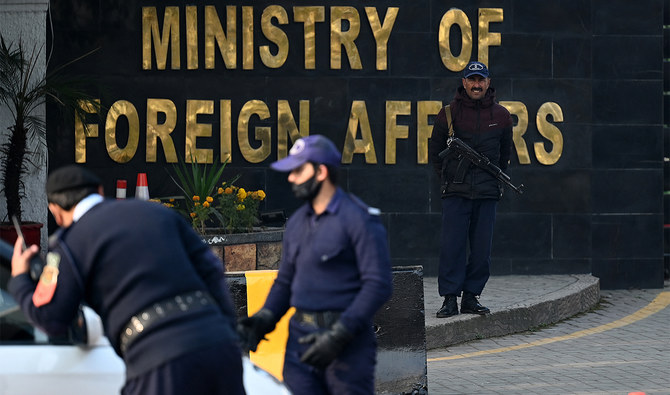PESHAWAR: Khaista Gul roams the streets of Peshawar city these days, an old harmonium strapped to his back, on the lookout for homes marking quiet celebrations amid a coronavirus outbreak that has emptied out wedding halls and live music venues around the world.

Khaista Gul, a harmonium player, plays his instrument at the guesthouse of his neighbor in Peshawar, Pakistan, on June 27, 2020. (Photo credit: Khaista Gul)
If he’s lucky, Gul will stumble upon a small wedding ceremony taking place behind closed doors, or find out about a family celebrating the birth of a son. He will then arrive at their doorstep and start pumping the bellows of his harmonium, smiling behind his green surgical mask in the hope that he may collect a tip when the music stops. On a good day, he will return home with Rs1,000, or $6.
Before the pandemic, Gul said he could earn Rs50,000 performing at up to four weddings a month.
“But since February, I’ve been feeding my family and paying our bills this way,” he told Arab News.

Rashed Ahmad Khan, a leading singer, performs at a stage programme in Peshawar, Pakistan, on January 15, 2020. (Photo credit. Hunari Tolana Organization)
Around the world, music venues, concerts and festivals have been shuttered or cancelled since March when the COVID-19 pandemic took hold. In Pakistan, public gatherings, including wedding parties and social assemblies, have been restricted under government imposed lockdowns, leaving musicians like Gul to stroll the streets and struggle to serenade people holed up at home.
Adversity for Peshawar's musicians is a painfully familiar story.
In the early 2000s, after conservative religious parties sympathetic to the Taliban rode to power in the northwestern Khyber Pakhtunkhwa province, of which Peshawar is the capital, they banned music on public transportation and concerts at Nishtar Hall, Peshawar’s only theatre venue. Landlords were forced to evict musicians from the Dabgari neighborhood in Peshawar’s old city, where they had lived for generations, and turned a blind eye to attacks on music shops. Many artists were gunned down.
Thus, the city’s once vibrant entertainment industry was virtually destroyed, and despite more secular parties coming to power after 2008, the music scene only began making a faint comeback in 2014.
Now, Peshawar's musicians say, dark days are upon them again.
Wagma Bibi, a popular Pashto singer and regular at Peshawar’s neon-lit music studios, said the long wave of militancy had brought the music industry to its knees. What had survived was made worse by the pandemic.
“I have neither paid my utility bills nor the rent of my house for the last two months. I now live under heavy debt and run my expenses on loans,” she said.
Long-time tabla maestro Muhammad Israr mirrored Bibi’s thoughts.
Though musicians have long been a mainstay of social life in Pakistan's northwest, dozens now begged on the streets, he said.
“Our art is linked to interactions between people. We depend on social gatherings. But the closing of halls and a ban on wedding celebrations have made our lives miserable,” said Bakhtiar Khattak, a singer and general secretary for the KP chapter of a small community organization called Pakistan Artist Equity.
Khattak regularly collaborated with other musicians for concerts and recordings before the pandemic began sweeping across Pakistan, he said, but now he and his peers’ incomes had been reduced to a mere trickle.
“No one in the world has been affected the way musicians have,” he said. “We have approached the KP cultural department and senior government officials to extend some financial help... to no avail.”
The KP culture directorate said it was rolling out a program within the month to financially support KP’s artists.
Just before the pandemic, the directorate disbursed a Rs30,000 monthly stipend among 500 artists for nine months under a program called ‘Living Human Treasure,’ Ajmal Khan, deputy director at the KP culture directorate, told Arab News.
“They [artists] will be given financial support within a month,” he said.
Some musicians have also come forward to help their colleagues.
Rashed Ahmad Khan, a leading singer in Peshawar and president of the Hunari Tolana Organization, said with the help of a private firm, his welfare organization had been distributing basic relief goods to senior artists on the verge of starvation.
“The last decade saw Taliban threatening singers and artists, blowing up CD shops, markets and threatening musicians to leave the region,” Nasrullah Wazir, a director at the University of Peshawar’s Pashto academy, said. “Now coronavirus poses a looming threat to our vibrant music industry.”



